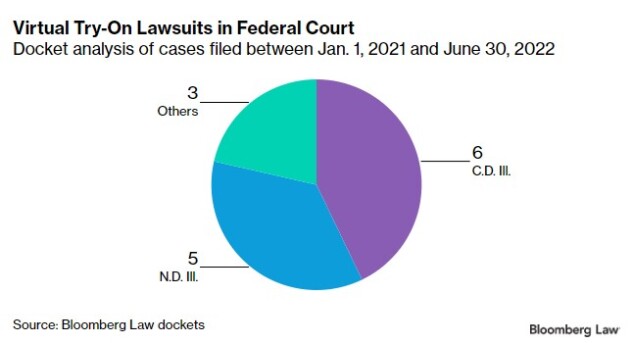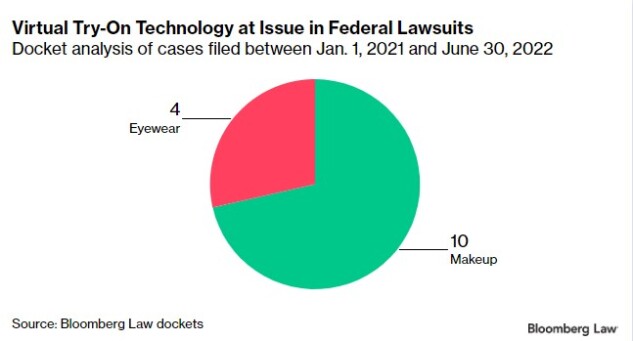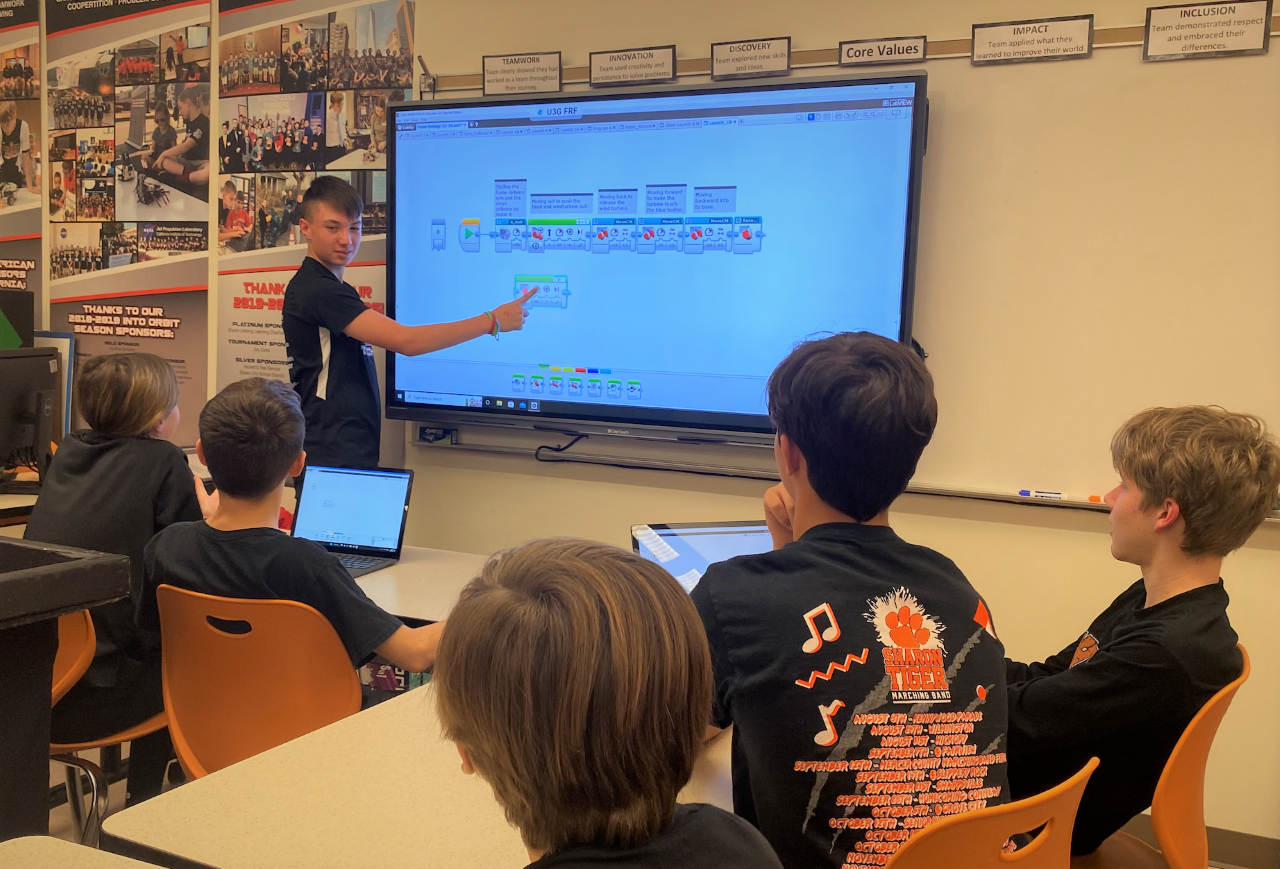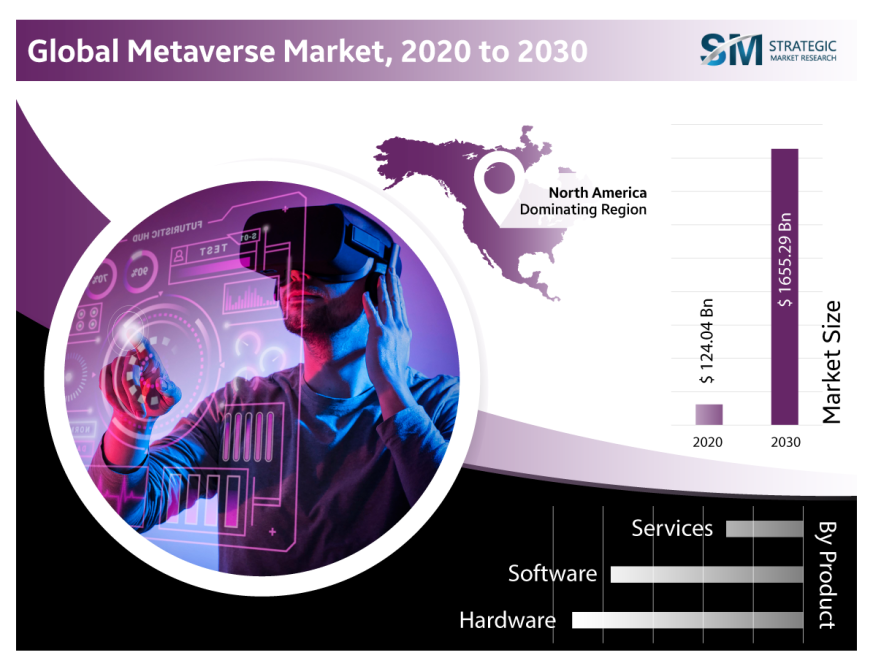
Biometric privateness proceedings towards outlets that let internet buyers to just about attempt on glasses and make-up are posing novel criminal problems and casting uncertainty at the era’s viability ultimately.
Corporations should take heed of the criminal, regulatory, and reputational dangers related to digital try-on era as privateness litigation climbs, lawyers warn.
Instances are already pending towards cosmetics conglomerate
Some outlets presented digital try-on equipment prior to the Covid-19 pandemic, however popular adoption took off as retail outlets shuttered and other folks stayed at house within the spring of 2020, stated David Oberly, a senior affiliate at Squire Patton Boggs in Cincinnati.
That “explosion” in try-on era coincided with an upswing in comparable litigation in 2021 and 2022, stated Oberly, who has defended corporations in such proceedings.
“In the case of working out how those instances will play out, there’s no nice resolution,” Oberly stated. “Those instances are nonetheless being filed however they’re being fought aggressively through defendants.”
Sunski, L’Oréal, and Estée Lauder didn’t reply to requests for remark about their use of digital try-on era. Lawyers representing Estée Lauder and LVMH didn’t reply to requests for remark concerning the pending litigation.
Warby Parker’s device seems to be at “more than one knowledge issues at the consumer’s face” whilst customers engage with it, however it doesn’t retailer any face scan knowledge or proportion it with any 3rd events, in step with the corporate’s App Retailer description.
Litigation Panorama
Proceedings towards corporations that supply digital try-on era are in large part all in favour of eyewear and make-up outlets even though some corporations, together with
That can be as a result of plaintiffs incessantly allege violations beneath Illinois’ Biometric Knowledge Privateness Act through pronouncing corporations are unlawfully gathering “scans of face geometry,” a time period used within the statute’s definition of biometric identifier, he stated.
Courts are recently grappling with whether or not packages of such era violate BIPA, which safeguards Illinois citizens’ biometric privateness rights and calls for corporations to hunt written consent prior to gathering knowledge akin to iris and fingerprint scans.
Whilst maximum federal proceedings had been filed in Illinois, a number of are pending within the Southern District of New York and the Northern District of California.
There are recently no pending proceedings in federal courtroom towards Easiest Corp., which gives digital try-on features to corporations together with
Prison Dangers
Whilst Illinois’ biometric privateness legislation has been a automobile for plenty of plaintiffs to convey proceedings associated with digital try-on era, it’s no longer a prerequisite for litigation, stated David Straite, a spouse at DiCello Levitt Gutzler in New York who basically represents shoppers.
“Corporations are enjoying with fireplace—they’ve this false sense of safety that in the event that they’re no longer in Illinois, they’re wonderful,” Straite stated. “However you don’t want a biometric statute to convey unfair pageant or invasion of privateness claims.”
Straite represents plaintiffs in digital try-on proceedings towards corporations however stated he couldn’t remark at the pending litigation.
Even though BIPA doesn’t restrict using digital try-on era, many corporations are offering such equipment for shoppers with out giving correct understand or acquiring correct consent, Straite stated. Different companies lack correct privateness insurance policies.
Nonetheless, litigation associated with the era is novel, and it’s unclear how the Illinois courtroom machine will come down at the era.
“The digital try-on instances in Illinois are nonetheless of their early phases and there are only a few substantive rulings,” stated Nicola Menaldo, a spouse at Perkins Coie LLP in Seattle. “Courts have no longer but adjudicated core problems like whether or not the information implicates biometric privateness legislation in Illinois or what sort of understand or consent is needed.”
Very best Practices
Whilst criminal possibility to be used of this era is very best in Illinois, corporations in every single place must take into consideration how they’ll factor notices associated with try-on era and replace privateness insurance policies if wanted, stated Carolyn Wimbly Martin, senior recommend at Lutzker & Lutzker LLP in Washington, D.C.
“If corporations are going to be storing knowledge comparable to those equipment, they want to map out the dangers of an information breach and take into consideration how they’re going to give protection to it,” Martin stated. “There are dangerous actors who in finding this to be an excessively treasured commodity.”
BIPA will stay a good looking street for such litigation as a result of its doable for massive statutory damages, however corporations must regulate different state biometric privateness proposals as legislators introduce expenses on this area, Menaldo stated. Differing definitions of “biometric” would possibly rise up in every jurisdiction, making litigation extra sophisticated down the street, she stated.
In spite of criminal demanding situations, the era is more likely to proceed rising in recognition as a result of its trade application and simplicity of use, Oberly stated. Some corporations would possibly make a choice to supply the tech in all U.S. jurisdictions aside from Illinois to keep away from the wave of litigation—however outlets are impossible to pull away totally, he stated.
“Those proceedings are giving corporations heartburn,” Oberly stated. “They’re being extra wary than they’ve been prior to now.”






